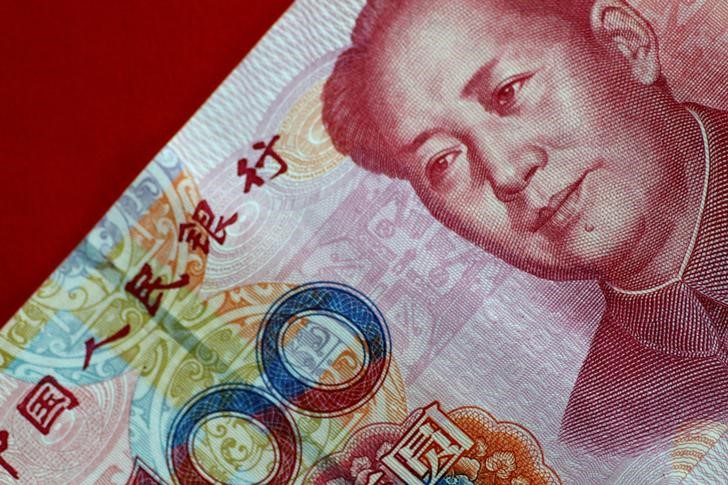Investing.com-- Most Asian currencies moved little on Thursday as disappointing inflation data from China weighed on sentiment, while weakness in the Japanese yen saw traders on edge over any government intervention.
The dollar was steady in Asian trade, sticking to a recent rebound as Federal Reserve officials continued to offer hawkish signals on interest rates. This notion also kept Asian currencies under pressure.
The dollar index and dollar index futures both moved little on Thursday, with focus remaining on any more Fed signals, particularly from a talk by Chair Jerome Powell later in the day.
China back in disinflation, yuan flat
But more signs of economic strife in China were the biggest weight on Asian markets, as government data showed that both consumer and producer inflation shrank in October.
The readings showed that China entered disinflation for the second time this year, as repeated stimulus measures from Beijing failed to meaningfully prop up spending.
The Chinese yuan was flat, benefiting from several strong daily midpoint fixes from the People’s Bank of China this week. But the outlook for the currency remained dour, especially in the face of prolonged economic weakness in China.
While the PBOC is now expected to roll out more liquidity measures to support growth, its options remain limited, given that Chinese interest rates are already at record lows. The central bank is also wary of causing further weakness in the yuan.
Weakness in China also bodes poorly for broader Asian markets, given their dependence on the country as a trading partner.
Other Asian currencies moved little on Thursday. The South Korean won rose 0.1%, while the Australian dollar was flat, steadying after seemingly dovish signals from the Reserve Bank of Australia triggered steep losses this week.
The Indian rupee hovered close to record lows, and is expected to remain weak despite improving growth in the South Asian economy. The Reserve Bank of India is also expected to intervene less to support the currency, amid dwindling foreign exchange reserves, according to a Reuters poll.
Japanese yen on intervention watch as 151 looms
The Japanese yen was flat on Thursday, as recent weakness in the currency put traders on guard over any potential government intervention in foreign exchange markets.
The yen was close to weakening past the 151 level to the dollar, which it had briefly breached last week following dovish signals from the Bank of Japan.
While BOJ Governor Kazuo Ueda said that an exit from the bank’s ultra-dovish policy was still possible before reaching higher wages, markets largely looked past his comments, as the outlook for the BOJ remained dovish.
A widening gulf between U.S. and Japanese interest rates has also weighed heavily on the yen, with the currency now trading close to levels last seen during the onset of the lost decade in the early 1990s.
Which stock should you buy in your very next trade?
AI computing powers are changing the stock market. Investing.com's ProPicks AI includes 6 winning stock portfolios chosen by our advanced AI. In 2024 alone, ProPicks AI identified 2 stocks that surged over 150%, 4 additional stocks that leaped over 30%, and 3 more that climbed over 25%. Which stock will be the next to soar?
Unlock ProPicks AI
